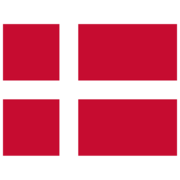Fiscal subject related
Denmark is set to implement significant updates to its e-invoicing system by introducing the OIOUBL 3 Invoice Package. This new format, unveiled by Nemhandel on November 21, 2024, includes several enhancements to improve compliance and interoperability within the European e-invoicing framework.
The main components of the OIOUBL 3 Invoice Package are as follows:
- Business Interoperability Specification (BIS) covers essential documents such as invoices, credit notes, and invoice replies.
- Message Level Response BIS: Introduces two distinct profiles for managing message responses, enhancing clarity in communication.
- Migration Plan: A structured timeline for transitioning from the existing OIOUBL 2.1 format to OIOUBL 3.
- Syntax Bindings and Field Definitions: Detailed specifications for fields used in invoices, credit memos, and responses.
The updated format introduces several significant modifications:
- Separation of Responses: Business-level responses and message-level responses are now clearly distinguished, each with unique customization IDs.
- Mandatory two-way profiles: All institutional users must receive invoice responses at registered endpoints, which streamlines communication and eliminates confusion caused by multiple profiles.
- Field Updates: Free-text fields are now read-only, structured fields have been revised for clarity, and negative credit notes will be replaced with standard invoices.
- Alignment with EN16931: The new format aligns with European standards, including adjustments for field mapping, calculations, and support for environmental data such as CO2 emissions.
Required Actions for Senders and Receivers:
- Invoice Senders: Must register in the Nemhandelsregistret (NHR) using OIOUBL 3 document profiles and be equipped to handle both invoice response and message-level response documents.
- Invoice Receivers: Should maintain compatibility with both OIOUBL 2.1 and OIOUBL 3 during the transition phase while registering as recipients in NHR with updated profiles.
Migration Timeline:
The Danish Business Authority has outlined a phased approach to migration:
- Release Candidate Available: November 15, 2024,
- Feedback Deadline: March 6, 2025,
- Final Version Release: April 10, 2025,
- Voluntary Support Begins: May 15, 2025,
- Mandatory Support Starts: November 15, 2025,
- OIOUBL 2.1 Phased Out: May 15, 2026.
These updates are designed to modernize Denmark’s e-invoicing framework, enhance compliance with European standards, and improve data interoperability across business transactions. By adopting OIOUBL 3, Denmark aims to facilitate smoother electronic invoicing processes that benefit both businesses and government entities.
Other news from Denmark
General overview regarding the Denmark 2025 e-invoicing system and NemHandel platform
 Denmark
Author: Nikola Novković
Denmark
Author: Nikola Novković
Denmark mandates that all B2G e-invoices be exchanged via the NemHandel platform following the OIOUBL standard, ensuring compliance with the European standard (EN-16931) since April 2019. Additionally, the Danish Bookkeeping Act requires all businesses to adopt Digital Bookkeeping Systems (DBS) capable of handling e-invoices, with a final compliance deadline of January 1, 2026. When it comes to B2... Read more



VIDA regulation adopted—what does that mean for business?
The EU adopted the VAT in the Digital Age (ViDA) package on March 11, 2025, introducing major changes to the VAT system starting January 1, 2027. Key reforms include mandatory digital VAT reporting by 2030, new VAT collection rules for online platforms, and expanded One-Stop Shop (OSS) registration to simplify cross-border compliance. Additional measures, such as mandatory e-invoicing, phasing out... Read more



Danish Business Authority Releases Updated Peppol Schematron Package 1.2.11
 Denmark
Author: Ivana Picajkić
Denmark
Author: Ivana Picajkić
The Danish Business Authority released Peppol BIS3-Other package version 1.2.11 on February 12, 2025, incorporating Peppol's hotfix for schematron version 3.0.14, which became mandatory on February 17, 2025. The update requires users to also adopt Danish CIUS package version 1.14.0, which includes Peppol schematrons updated to version 3.0.18. Read more



Slovenia: EU Targets Unsafe E-Commerce Imports with New Measures
The European Commission is tightening regulations on e-commerce imports to address the surge of unsafe and counterfeit goods, particularly from China, by reforming customs rules and increasing product safety checks. Key measures include removing the duty exemption for low-value parcels, introducing a potential customs fee, establishing priority control areas, and launching an EU-wide product safet... Read more



Denmark Updates OIOUBL E-Invoicing Standard: New Schematron Version 1.15 RC Released for Testing
 Denmark
Author: Ivana Picajkić
Denmark
Author: Ivana Picajkić
The Danish Business Authority has released OIOUBL Schematron 1.15 (RC) for OIOUBL 2.1, introducing stricter VAT validation rules to improve e-invoicing accuracy. Changes include mandatory 0% VAT rates for Zero-Rated items, stricter VAT amount calculations at the line level, and enhanced VAT summary validation for entire invoices. . Read more



Danish Business Authority Releases Updated Peppol Schematron Packages 1.14 and 1.2.10
 Denmark
Author: Ivana Picajkić
Denmark
Author: Ivana Picajkić
The Danish Business Authority has released updated Peppol Schematron Packages (CIUS 1.14.0 and BIS3-Other 1.2.10), which will become mandatory on February 17, 2025. Let's delve deeper into this topic! Read more



Denmark Clarifies VAT Exemption for Authors and Artists
 Denmark
Author: Ivana Picajkić
Denmark
Author: Ivana Picajkić
Denmark has clarified its VAT exemption for authors and artists, effective January 2025, while introducing limitations on certain intellectual property transactions. While artistic services like live performances and creative outputs remain VAT-exempt, the exemption no longer applies to copyright transfers, patents, trademarks, or licensing fees from third parties. Denmark has announced a clarific... Read more


